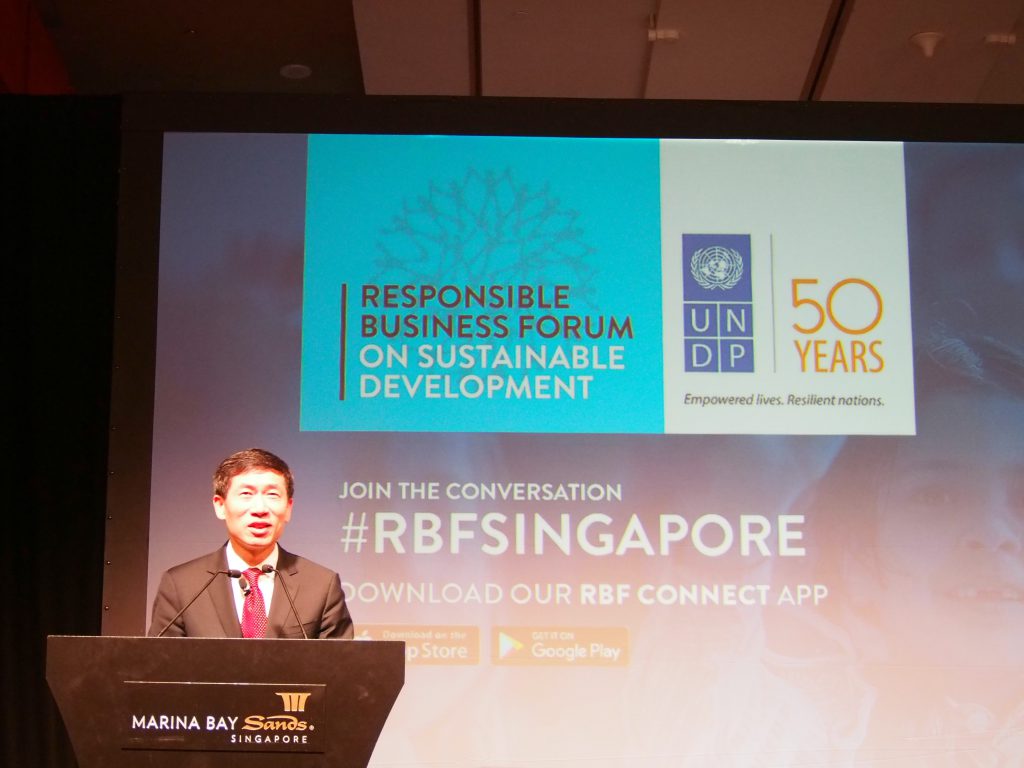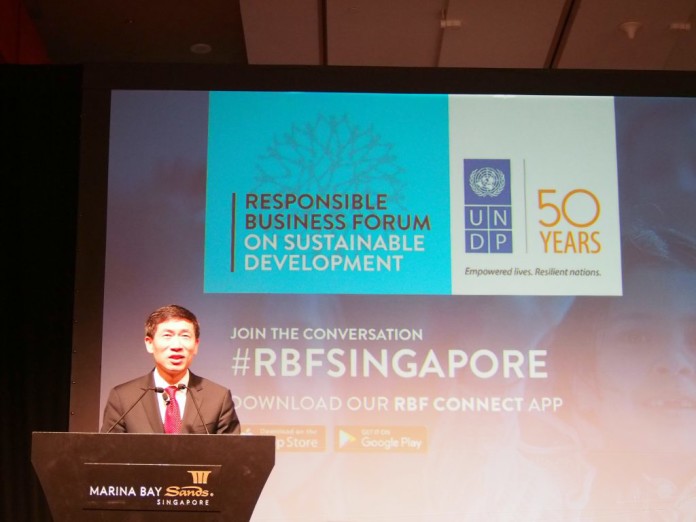THE United Nations Development Programme (UNDP) has called on Asia-Pacific business leaders to play a greater role in achieving its Sustainable Development Goals (SDGs) amid a new development era of unprecedented environmental and social challenges.
Speaking at the fifth Responsible Business Forum in Singapore this week, Haoliang Xu, the UN Assistant Secretary-General and UNDP Director for Asia-Pacific, said the new development era also called for unprecedented solutions to ensure stability and sustainability.
“Climate change, ageing populations and explosions of popular discontent with the status quo are combining to present an existential threat to both people and planet. Everyone must join together to face this challenge,” he said in a statement on Wednesday.
The forum, organised by UNDP and Global Initiatives, aims to address a “sea change” in the nature of development funding by creating a new partnership for sustainable development.
During the UN Sustainable Summit on Sept 25, 2015, world leaders adopted the 2030 Agenda for Sustainable Development, which included the set of 17 SDGs aimed at ending poverty, fight inequality and injustice, and tackle climate change and infrastructure issues by 2030.
September was the warmest month in modern temperature monitoring and 2016 is likely to be the hottest year on record, the UNDP said.
SEE ALSO: Singapore to host Asia’s first ‘Zero-Waste, Zero-Emission’ business forum
It said global warming and the other effects of climate change are leading to an increase in natural disasters, for which Asia is already the most vulnerable region in the world with 1,600 disasters in the last decade and the loss of half a million lives.
Four-fifths of the population in Asia, UNDP said, live in countries where inequality has increased over the last two decades, and the unequal distribution of resources – including access to water, farmland and economic opportunity – is a major driver of conflict in areas as diverse as Afghanistan, Myanmar, Thailand and the Philippines.
At the same time, accelerated ageing in many countries presents governments with an ever heavier burden on the public purse to provide pensions, healthcare and other basic services.

The UN Assistant Secretary-General and UNDP Director for Asia-Pacific, Haoliang Xu. Image via UNDP
“All sectors of society – private and public, international and domestic – must collaborate to address challenges that affect the wellbeing of us all,” added Haoliang Xu.
“Our role is to combine decades of experience with ideas and resources from new partners, including in developing countries where businesses account for 60 percent of GDP and 90 percent of jobs.”
According to a UNDP report launched last month, domestic public and private finance account for 89 percent of all financial flows in Asia-Pacific. While foreign funding, or Official Development Assistance, is still essential for the development system, it now accounts for 0.7 percent of total financial flows in Asia-Pacific (down from 13.5 % in 1990).
This trend in development funding is partly driven by the increase in the number of middle-income countries from 16 to 28 over the past decade.
SEE ALSO: The role of sustainability in a complex business world
The UNDP said this required a fresh approach to financing for development that mobilises contributions from a wider range of sources, including the private sector.
“At the same time, there has never been a greater need for innovative ideas, new partnerships and funding as we gear up to achieve the SDGs,” the UNDP said.
The forum has also seen UNDP, Global Initiatives, 600 business leaders and government officials start work on a new coalition for sustainable development.
Mark Cliffe, Chief Economist of ING Group, who joined the UNDP press briefing at the forum, said sustainable growth posed a challenge to “enlightened” companies due to the nationalistic shift in global politics and low level of commodity prices.
However, he said: “Technology and new consumer propositions, such as sharing economy models, offer exciting new ways to deliver on the SGDs.”
Cliffe said the is currently an “exciting” array of new technologies making the pursuit of the SDGs a commercial proposition across a range of sectors.
“A great example is the rapid advances in fintech, combining mobile and internet technology, cloud computing and blockchain technology, which will facilitate explosive growth in financial inclusion.
“Micropayments and microcredits will fuel growth in micro-enterprises and jobs. In turn, this will help the delivery of many of the other SDGs.”
Cliffe said governments also have an important role in facilitating and providing incentives to business action.
“A number of economies, not least in Asia, have made encouraging progress in liberalising their economies and stimulating investment,” he said.
“Infrastructure development, both physical and digital, is vital, but governments can also help through smarter regulation and shifting the burden of taxes away from labour and towards resources.” he added.





